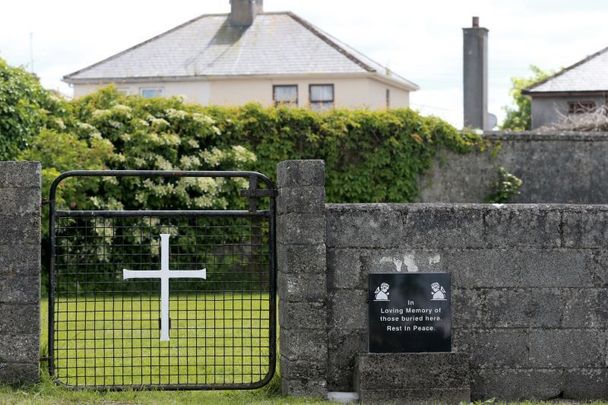UN human rights experts say they are concerned about the lack of adequate redress for victims of racial discrimination and systemic racism in Irish childcare institutions between the 1940s and 1990s.
While welcoming the Irish government’s Action Plan to provide tangible benefits for Survivors and Former Residents of Mother and Baby and County Home Institution, the panel of UN experts issued the following statement on September 23:
“We sent an allegation letter to the Irish Government in April 2022 expressing concern that children of African and Irish descent were subjected to differential treatment because of their race, colour, and/or descent, leading to further violations of their human rights.
“In its response to the allegation letter, the Irish Government referred to the official State apology offered on 13 January 2021 in which the State recognised that the ‘additional impact which a lack of knowledge and understanding had on the treatment and outcomes of mothers and children with different racial and cultural heritage […]. Such discriminatory attitudes exacerbated the shame and stigma felt by some of our most vulnerable citizens, especially where opportunities for non-institutional placement of children were restricted by an unjust belief that they were unsuitable for placement with families.'"
??#Ireland: UN experts call for adequate redress for victims of racial discrimination and systemic racism in Irish childcare institutions between the 1940s and 1990s. https://t.co/tFW4g6ufEg pic.twitter.com/sUZ8Hb0C1O
— UN Special Procedures (@UN_SPExperts) September 23, 2022
The panel of experts said that according to the information received, systemic racism in childcare institutions has resulted in the higher institutionalisation rate of children of African and Irish descent.
Because of their prolonged time in institutions, these children were exposed to heightened risk of corporal punishment, sexual abuse, and physical and verbal abuse, with life-long consequences, including on their right to enjoy the highest standard of physical and mental health. Some of them were also subjected to vaccine trials.
"These individuals had their childhood stolen because of the racial discrimination and systemic racism that prevailed in the childcare institutions at the time," the panel said.
"We are seriously concerned over the severe and continuing effects that racial discrimination and systematic racism have had on the lives of the adults who are currently seeking redress."
The panel noted that under international law, States have an obligation to ensure accountability for past human rights violations and provide full reparation to the victims, when these violations still have effects.
"The State apology is an important element of the restorative justice process, but it is not enough," the panel said.
The experts have called on the Irish government to take further action to provide those who were subjected to differential treatment in childcare institutions with effective remedies.
The panel said that any redress scheme must recognize and provide redress for all the human rights violations perpetrated against children during the entire duration of their stay in Irish institutions, including Mother and Baby Homes, industrial schools, reformatories, Magdalen Laundries, and analogous institutions, as well as life-long impacts.
The proposed Bill Payment Scheme provides a unique opportunity to provide redress for the harms caused due to racial discrimination and systemic racism to which children of African and Irish descent were subjected, according to the UN experts.
The UN panel's remarks on racism in Ireland's institutions contradict the 2021 Mother and Baby Homes Commission of Investigation Final Report which said "there is no direct evidence of different treatment or institutionalised racism in the records." The report did acknowledge, however, that "a number of sources suggest that individuals may have had a negative bias."
The Association of Mixed Race Irish (AMRI) welcomed the statement from the UN, noting that it is "pleased that finally, somebody believes what we have been saying for years about children of African descent in these institutions."
Conrad Bryan, AMRI trustee, said: “Like many survivors of Mother and Baby Institutions, I was also deeply disappointed with the Mother and Baby Home Commission’s final conclusions in its report, in particular, its failure to see the systemic racism that was clearly evident in Mother and Baby homes and in other institutions, as well as the additional impact on our human rights and on our lives as children and adults."
AMRI is pleased that the United Nations calls on the Irish State to provide redress to children subjected to systemic racism and racial discrimination in Irish Childcare Institutions https://t.co/2pS9pjf8ME pic.twitter.com/oOkI1BM6dU
— The Association of Mixed Race Irish (@AssocMRI) September 23, 2022
The new statement from the UN comes not long after the UN Human Rights Committee published its findings on the implementation of civil and political rights in six countries, including Ireland, on July 27.
Ireland displayed "many positive developments," Vasilka Sancin, vice-chair of the UN committee said upon the publication of the findings, but the Committee still had concerns about "past human rights violations," especially in Mother and Baby Homes.
Ireland was asked by the Committee "to take measures to ensure all human rights violations" in Irish Mother and Baby Homes "are fully recognized."
Last November, the Irish Government published its Payment Scheme for Mother and Baby Home Survivors, which will deliver redress based on how long a person was in an institution. However, the scheme has been met with criticism from survivors.




Comments